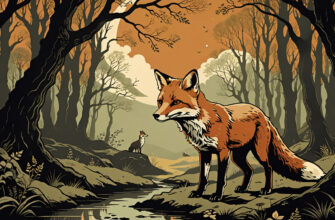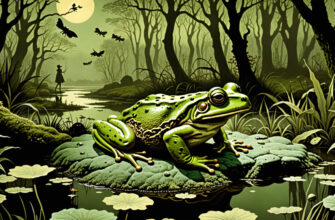Dreaming of a baby whale taps into something quietly powerful beneath the surface—a tender moment where vulnerability meets the stirring of new beginnings. Maybe there’s a fresh idea, a new feeling, or a budding relationship that’s pushing its way into awareness, and this dream nudges the dreamer to slow down and honor how delicate that emergence feels. This isn’t about being fragile in a weak way, but recognizing that strength often starts soft, wrapped in uncertainty and the need for careful nurturing. A baby whale, still learning to navigate the vast ocean, mirrors that early phase where everything seems both precarious and full of promise.
- What a Baby Whale Dream Reveals About Vulnerability and New Beginnings
- Emotional Currents Beneath the Surface: Intuition and Nurturing
- Reading This Dream Through a Queer and Feminist Lens
- Traditional Meanings of Whales in Myth and Culture
- Lesser-Known Folklore and Queer-Feminist Reinterpretations
- Charting the Spiritual and Astrological Messages in the Baby Whale Dream
What a Baby Whale Dream Reveals About Vulnerability and New Beginnings
At the heart of this image is a delicate balance—between fragility and quiet strength—that whispers of new emotional territories. There’s something deeply human about watching a tiny whale calf awkwardly rise with the waves, reminding us that growth sometimes looks like a stumble before steadiness. It’s a signal that parts of the self, whether feelings, ideas, or connections, are in the earliest phases of development. These parts need to be held gently, without forcing or rushing their unfolding.
In dreams, this symbol often points to transitions that come with a mix of excitement and caution. The baby whale doesn’t yet have the bulk or power of its adult kin, but there’s an inherent endurance beneath the surface. It’s a call to recognize the voice emerging in quiet ways, encouraging attention to what might easily go unnoticed or be dismissed as “too new” or “too small” to matter. Instead, the dream suggests these tender sprouts are vital and deserve space to grow at their own rhythm.
Emotional Currents Beneath the Surface: Intuition and Nurturing
Beyond what the eye can see, dreaming of a baby whale invites a dive into deeper currents of intuition that fuel personal growth. The whale’s intimate connection to the water embodies emotional receptivity, and the dream encourages trusting that inner knowing even when exterior signs are unclear or still forming. It’s like being handed a compass tuned more to feeling than logic.
This dream also surfaces the importance of nurturing delicate relationships, fragile feelings, or creative impulses that require careful tending. Just as a mother whale stays close to her calf, this image asks how well you are caring for your own tender parts, especially those that might be vulnerable or sensitive to external pressures. Holding that space with kindness, patience, and softness sets the stage for those parts to flourish over time.
Reading This Dream Through a Queer and Feminist Lens
In a culture that often prizes toughness, dreaming of a baby whale can be a radical act of gentleness and resistance. It reminds that softness is not weakness but a courageous mode of being, especially for those whose identities have been shaped by marginalization or forced strength. This dream honors the work of community support and self-parenting—acts that heal and strengthen from within, offering protection and tenderness when external systems may fail.
Seeing this dream through queer and feminist perspectives highlights the reclamation of care as political and necessary. It’s an invitation to embrace vulnerability as a source of power, to build supportive “pods,” and to practice nurturing the self with all the patience and love that baby whales receive from their families. This form of care becomes its own kind of activism, shaping a world where gentle strength is visible and valued.
| Dream Theme | Emotional Message | Suggested Reflection |
|---|---|---|
| Baby whale surfacing | New feelings or ideas quietly emerging | What parts of yourself are asking for space and care? |
| Being with a baby whale | Connection to vulnerability and nurturing | How can you hold your tender feelings without rushing? |
| Mother whale and calf | Importance of community and support | Who makes up your “pod” that helps you thrive? |
- Trust your intuition: Let yourself feel what arises without judgment or haste.
- Protect new growth: Tend to emerging ideas or emotions like a precious seedling.
- Embrace gentleness: Recognize softness as strength, especially in a culture pushing toughness.
Traditional Meanings of Whales in Myth and Culture
Whales have long been powerful symbols across many cultures, often representing wisdom, emotional depth, and protection in ways both mythic and everyday. Their vast size and gentle nature make them emblematic of the balance between immense strength and calm presence. Seeing a whale isn’t just about the animal itself—it’s about what it mirrors in us: deep knowledge buried beneath the surface, the kind that can’t be easily spoken but profoundly felt.
Indigenous stories offer rich tapestries of meaning. In many Pacific Northwest tribes, whales carry the stories of ancestors and the spirit of the ocean, serving as guardians and teachers. The sperm whale features in Inuit lore as a bridge between worlds, whispering secrets to hunters and dreamers alike. Meanwhile, maritime legends from sailors recount whales as protectors, sometimes saving ships from storms or offering safe passage through dark waters.
Across the globe, whales appear as symbols of rebirth and healing. The biblical tale of Jonah swallowed by a great fish echoes the transformative cycles many associate with whales—being held in the depths only to emerge renewed. In Japanese myth, whales often symbolize prosperity and familial care, reflecting their social nature and nurturing behavior. Overall, whales gesture toward emotional richness, resilience, and a quiet strength that transcends mere physicality.
Lesser-Known Folklore and Queer-Feminist Reinterpretations
Whale symbolism carries nuances often overlooked in mainstream retellings, especially when viewed through a queer and feminist lens that highlights fluid identity and radical gentleness. Whales, particularly baby whales, become emblems of vulnerability paired with enormous capacity to love and protect.
Marginalized communities have long embraced the whale’s gentle giant image as a metaphor for living authentically in a world that demands armor. The way whales navigate vast, shifting oceans can mirror the fluidity of gender and identity, refusing rigid boundaries and celebrating interconnectedness. Whales also embody community care—their pods working as extended families built on support and shared survival, resonating with chosen kinship networks many queer people build.
This approach invites a deeper kind of gentleness—not weakness but strength through softness. Holding space for emotions, allowing for slow growth, and nurturing the tender edges of life become acts of resistance and survival. In this light, the whale invites healing that honors the whole self, urging care not just of the individual but the collective.
Charting the Spiritual and Astrological Messages in the Baby Whale Dream
Dreams often speak in symbols that don’t translate with simple words. Astrology offers a way to tune into these messages, going beyond the surface to what the soul knows without having to explain. When a baby whale appears in a dream, its themes align beautifully with the planetary energies of nurturing, receptivity, and emotional growth.
The Moon’s influence in Cancer ripples through this symbolism—anchoring us in home, safety, and the depths where feelings dwell. Cancer’s watery realm invites tending to where we feel most vulnerable, echoing the baby whale’s need for protection and gentle care. Meanwhile, Neptune, the ruler of dreamy Pisces, brings a mystical softness, emphasizing compassion and spiritual openness. Neptune’s waters dissolve strict boundaries, encouraging us to swim in the currents of intuition and empathy.
Venus adds a layer of tender love and community, reminding us that nurturing the self happens through connection—whether romantic, platonic, or self-directed. The emotional fluidity of Pisces encourages surrender to what is not yet fully formed, welcoming growth without rushing or forcing.
To listen to these energies, embodied wisdom becomes key:
- Notice your body’s signals: What sensations arise when you recall the dream? Tension, softness, warmth?
- Allow feelings of vulnerability: Rather than pushing them away, what might it mean to cradle that tender part?
- Seek your emotional rhythm: How does your inner ocean move? Is it stormy, calm, or quietly ongoing?
Embracing this whole-body knowing connects us to a deeper truth than words alone—what the baby whale’s song offers is an invitation to slow down and listen with all that we are, to honor the tender new growth within.







